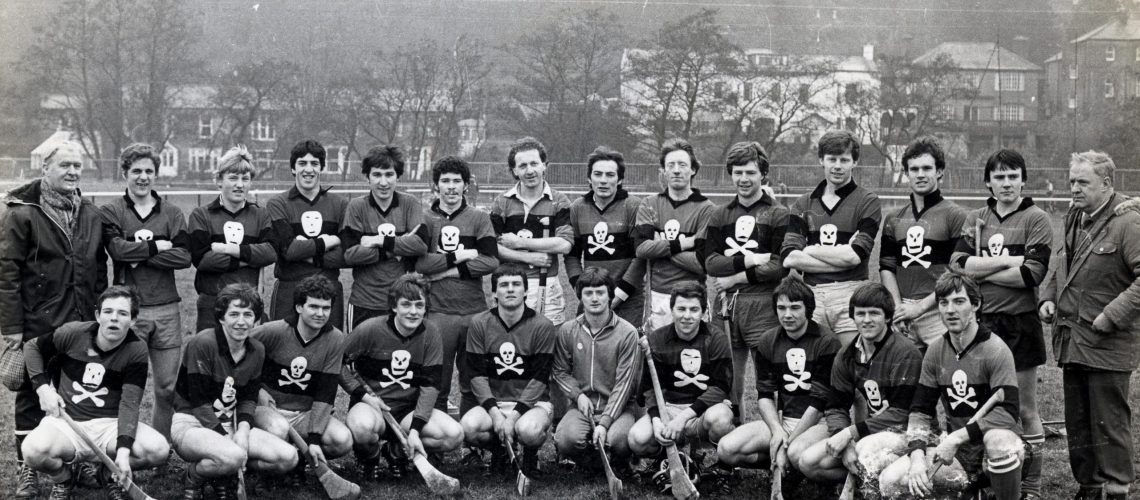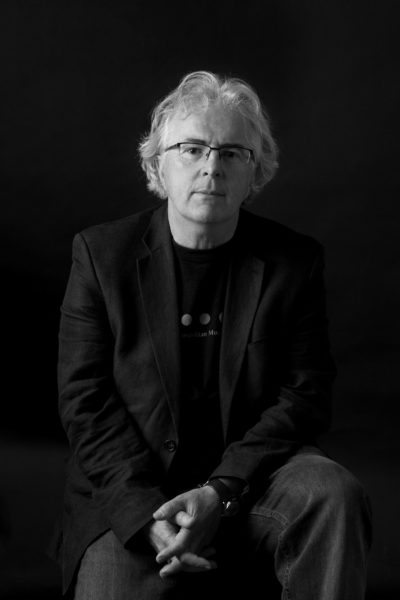Two Extracts removed from a short story. A man ruminates as he watches his son play in an All Ireland Final…
Extract 1:
A previously quiet and nondescript woman in the row behind stands up suddenly and screams: “Up the Banner! Up the Banner! Up the Banner!” A dusting of spittle erupts from her upturned mouth and begins to drizzle on unnoticing heads below. Others rise too, and bellow, as if in rejoinder, apparently at the hurlers, who are now filing into two lines behind The Artane Band. But I know what they are really shouting about and to whom. To old grievances with old tribes; of loss and anger; to themselves; of joy; to those who will follow them; of lasting pleasure; to the ghosts of their mothers and fathers and grandmothers and grandfathers; of having meaning; to and of stories; to insults borne; of lasting, enduring; to past glories and failures; of dying; to old wounds and bitter losses; of passing something on; to future acclamations; of hope and birth; to home; of and to the weaknesses that fester inside them but which might, just might, be assuaged today – if only for a time. It’s not really about hurling and hurlers at all. It never is. And I’ve heard it all before.
Extract 2:
Pat understands hurling. Most people don’t. Most people don’t know that the word agony comes from the Greek: agōn, meaning a contest. It’s a term often used in relation to literature, especially regarding the contrasts that we crave so much. Good and evil, them and us, men and women, peace and war, light and dark, glory and defeat. It’s one of the reasons why we write and compose and paint; and read books and listen to music and look at art. And play and watch sport. Evelyn says I do go on about it, and even Pat gives me funny looks sometimes, but it’s important that you of all people think about this stuff, and I know you’ll get it. I know you’ve been playing hurling seriously now for fifteen years and I’m sure you don’t think about the game that much – you’re too busy doing it. Well I’m too old to play it anymore so I do think about it and I want to tell you some things.
A favourite writer of mine is the Englishman Simon Barnes, who discusses sports as metaphors. I don’t agree with him. For Simon, hurling is a metaphor for war, but I see hurling as war, pure and simple. War with rules, yes; we don’t kill each other, much as we might like to, at times. But it is still a battle in which we do triumph in glory or suffer agony in defeat; and agony is what hurling, what sport, is about – first and foremost. The agōn. Hurling is real. It’s about turning up, sticking to it, facing fears, and being present to our own lives, whatever they bring. There is a quote from an American gambler, who said that the most pleasure he ever gets in life is winning and the second most pleasure he ever gets in life is losing. Hurling gives us that. Even the losing is a pleasure, bitter-sweet though it may be. Today, Sean, you might just find that out.
But hurling is not just any old sport, it is our sport. It is bound into our history and mythology, our communities and spaces. I believe that, at heart, it evokes something of our essence as a race. Hurling is different from most other field sports in that it is so contested and so confrontational at every turn. In soccer and rugby, teams oppose each other as teams, as a group. In hurling so much of the combat is individual, man to man. And it’s constant. Every single ball is fought for, won and lost. And it’s so old, so old. It’s one of the few things that we have not lost of ourselves in time, or defiled. Our language is gone and most of our customs and culture, some of our best laws, six of our counties, most of our principles and much of our landscape, but we still have this precious jewel that enriches those who love it and those who watch it but especially those who play it. You are rich today, boy. You are Croesus. Micheál Ó Muircheartaigh, the great commentator, once said that our national holiday should not be on the 17th of March but on the September Sunday of the Hurling All Ireland Final, and I agree. All Irish people should march today, in praise and glory of the ageless spirit that hurling summons in us, ancient and true, beautiful and brave. Once I stopped drinking, Sean, I took up reading, and my friend Joe Hayes supplies me with books, mostly non-fiction. I’ve become a bit of a bore, I must warn you.

